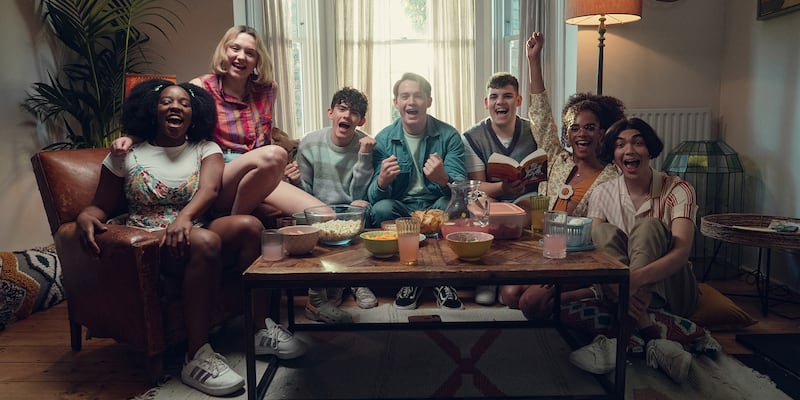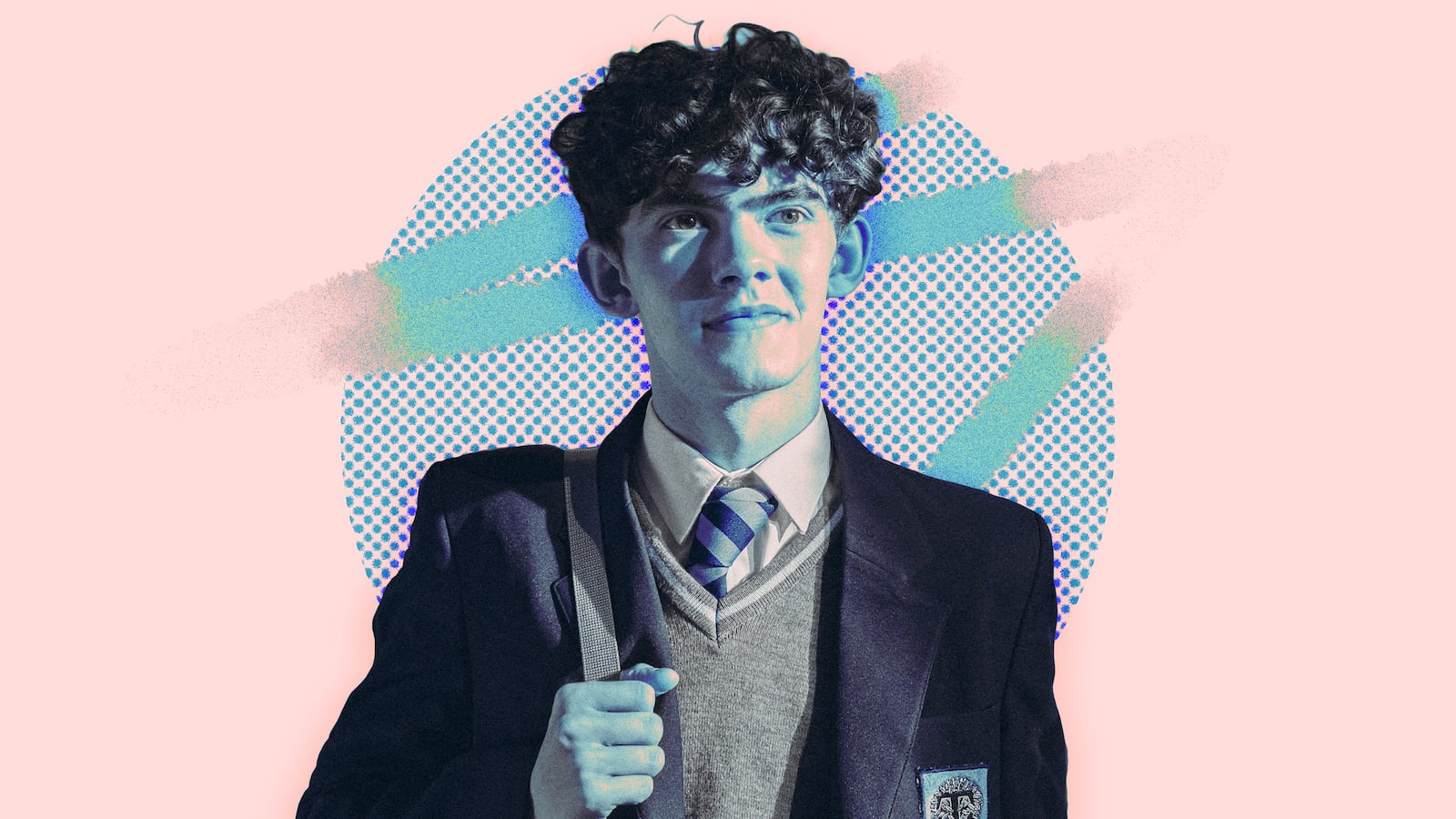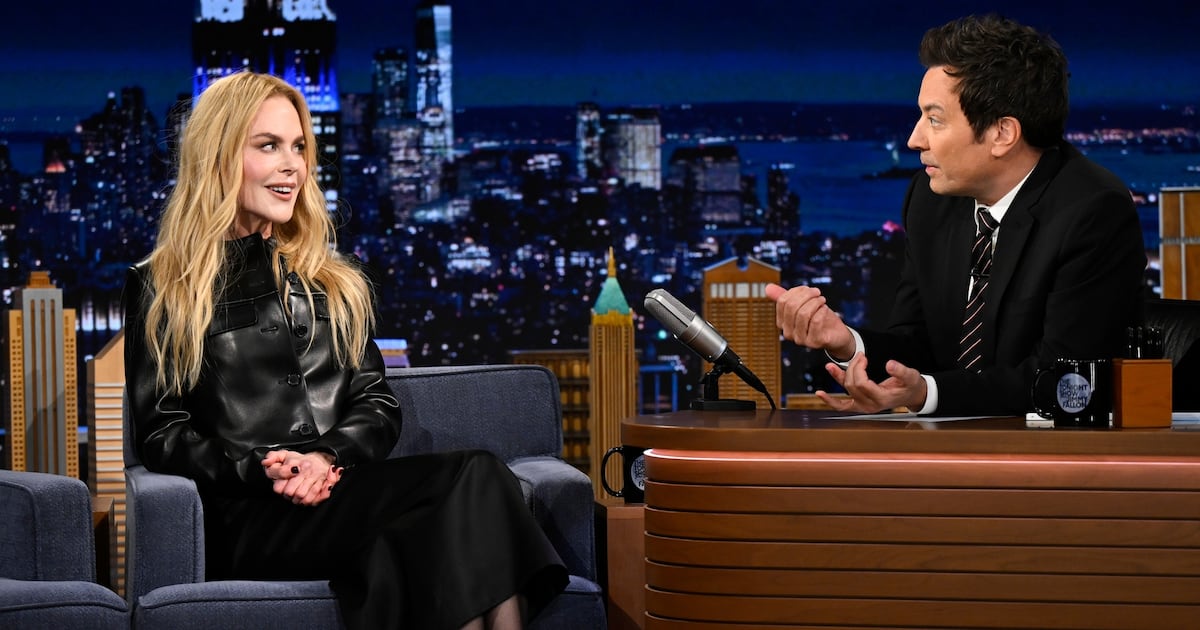This piece contains details about eating disorders and self-harm.
As a gay man, I’ve always felt strange being obsessed with film and TV. I’d have friends talk about how deeply they’d resonate with particular characters, but growing up, I never really felt much of that myself. Queer representation on screen was minimal, and the few gay characters that did exist on TV (like Marco on Degrassi: The Next Generation) were typically pushed to the side in favor of straight characters. It almost felt like the thing in the world I loved most in the world wasn’t for me.
Things are very different now, and it’s wonderful to know that so many queer youths won’t feel nearly as confused or underrepresented by the projects they love watching on screen. A show I would have completely and utterly adored growing up is Hearstopper, the surprise hit that just released its second season on Netflix.
Heartstopper, based on the graphic novel series by Alice Oseman (who also created and writes the TV series), is a tender, heartwarming queer love story about two British teens: out and proud Charlie (Joe Locke) and rugby lad Nick (Kit Connor). It might be the sweetest show on television, but it also has just enough edge to stop it from feeling overly cloying. Practically everyone in the primary cast is queer, and the show is a proud celebration of how wonderful it feels to live an authentic life.
And that’s why I was so disappointed in how the series did a disservice to what could have been an important and potentially life-saving storyline dealing with an issue that’s rarely talked about within the LGBTQ+ community: the shocking prevalence of eating disorders among queer youth.
(Warning: Spoilers for Heartstopper Season 2 ahead!)
Despite the radiant rainbow-positivity, this isn’t a show that hides the reality of being queer: Growing up not understanding why you’re different from anyone else can be brutal, and there can be unfortunate and serious consequences to being out, especially when you’re young. Much of the second season follows Charlie and Nick’s blossoming partnership. While Charlie is confident in his sexuality and out at school, Nick is still closeted, terrified of what his peers and family (barring his super accepting mother, played by Olivia Colman) will think.
Their intimate circle of friends (many of whom are also queer) know about their relationship, and that’s good enough for Charlie, who’s on Cloud 9 now that they’re together: “This is the best my life has ever been. I don’t have to hide my amazing boyfriend anymore. I’m not getting bullied. Everything’s perfect,” he tells Nick. But that’s not entirely true—Charlie isn’t eating.
This is important ground for a show like Heartstopper to cover. Eating disorders are devastatingly prevalent in society, especially among LGBTQ+ people. A 2020 study revealed that a staggering 54 percent of LGBTQ+ adolescents have been diagnosed with a full-spectrum eating disorder, while an additional 21 percent believed they had an eating disorder during their lives. For the math-averse, that’s a whopping 75 percent of queer youth who’ve been impacted by eating disorders. And a lot of those are gay men.
In the final scene of Heartstopper Season 2, Nick finally asks Charlie about the bullying he endured when he first came out. Actors Connor and Locke perform the scene beautifully, but Locke’s line reading is particularly devastating: “I think it surprised me how homophobic people were. I thought things were better nowadays.”
“People would just call me disgusting to my face,” he continued. “And it went on for so long I think I started to believe what they were saying.”
It’s completely crushing to hear Charlie, who’s appeared so happy-go-lucky throughout the entire season, reveal how deeply bullying has impacted him. I felt his confession in my bones, recalling how brutal my own teenage experience felt at times. And though I’ve moved past it, the thought of those words still stings over a decade later, so I have no doubt it’ll take Charlie a long time to truly process and work through the hurt.

The season 2 cast of Heartstopper.
Samuel Dore/NetflixCharlie also reveals to Nick that he resorted to cutting in the past. It’s a powerful moment. The camera stays on Charlie, emphasizing the pain he’s experienced, rather than focus on his partner’s reaction. Nick handles the situation perfectly, lifting Charlie’s spirits up rather than admonishing him for hurting himself. He holds Charlie tight and tells him all the things he adores about him. They share a kiss, and then Charlie heads home.
But that’s it. What could have been a tender exploration of how Charlie still is harming himself, albeit in a different way, gets put aside for budding romance. Something about it just feels off. The show had sprinkled references to Charlie’s issues with food, focusing the camera on a number of meals he’d left uneaten, to the concern of Nick.
He even faints during their trip to Paris, where Nick confronts Charlie about his eating. Charlie tells Nick his problems with food stem from trying to get control of his life after all the bullying. Nick is every bit as supportive as he is in the final scene. Nick even makes him have a bite of a sandwich. Then it's never brought up again, and there’s no real indication the issue is resolved. But in the final scene, there’s a sudden reveal that Charlie self-harmed, and the eating disorder storyline becomes a distant memory.
It’s here Heartstopper runs into a problem, trying to effectively straddle two separate desires—queer euphoria and realistic representation. It wants so badly to be optimistic that when it does address conditions like eating disorders it lacks the appropriate gravity and detail. By not getting into the details of what’s ailing Charlie, beyond just a few lines acknowledging his issues, Heartstopper is trying to have the best of both worlds. Eating disorders are vastly complex and don’t just vanish after a quick chat. The series fails to tackle the issue head-on, presumably to make this a more palatable, sweet show. If that’s the case, why bring up the issue in the first place?
The show’s superficial exploration of the issue feels odd, since it otherwise so successfully explores the nuances of what it means to be a queer youth in contemporary society. For a show that’s so important to teens, using kiddy gloves to deal with a very real issue feels like a misstep.
That said, the plotline isn’t a complete disaster. It doesn’t bend to the typical representation of people with eating disorders—namely a lot of sitting agonizingly over or by a toilet. Nick is the only person who seems to realize there’s something wrong with Charlie, and it's only through not-so-subtle hints—Charlie leaving behind full plates of food—that he’s able to realize something is wrong behind the facade. Mental health issues often aren’t recognizable, even if you know someone intimately, and Heartstopper deals with this admirably.
It’s such a shame because season 2 of Heartstopper is largely wonderful. It’s still one of the best shows steaming right now, particularly for kids trying to figure out their own identity. But in Season 3 (which is already confirmed), the show will have to make a decision: Deal with heavy issues respectfully and thoroughly, or dive head-first into presenting the most optimistic show on TV.
Keep obsessing! Sign up for the Daily Beast’s Obsessed newsletter and follow us on Facebook, Twitter, Instagram and TikTok.






